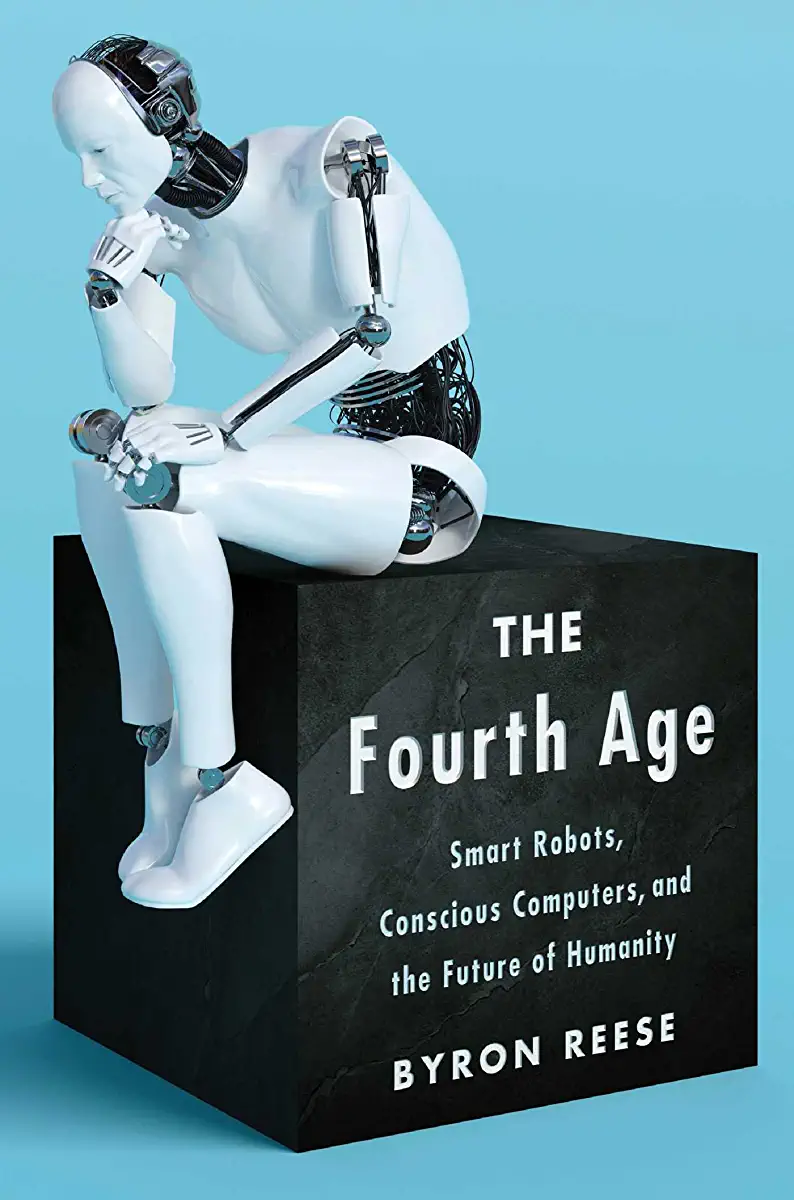
The Fourth Age- Smart Robots, Conscious Computers, and the Future of Humanity by Byron Reese
The Fourth Age: Smart Robots, Conscious Computers, and the Future of Humanity
In his groundbreaking book, The Fourth Age, Byron Reese argues that we are on the cusp of a new era in human history. This era, which he calls the Fourth Age, will be characterized by the rise of intelligent machines. These machines will be able to think for themselves, learn from their experiences, and even feel emotions.
Reese's book is a fascinating exploration of the potential benefits and risks of this new technology. He argues that intelligent machines could help us solve some of the world's most pressing problems, such as climate change, poverty, and disease. However, he also warns that these machines could pose a threat to humanity if they are not properly controlled.
The Fourth Age is a must-read for anyone who is interested in the future of humanity. It is a thought-provoking and insightful book that will challenge your assumptions about the nature of intelligence and the future of our species.
The Rise of Intelligent Machines
The first part of The Fourth Age is devoted to exploring the history and development of intelligent machines. Reese traces the evolution of artificial intelligence from its early days in the 1950s to the present day. He discusses the major breakthroughs that have been made in the field, as well as the challenges that still remain.
Reese argues that we are now on the verge of a new era in artificial intelligence. This era, which he calls the "Age of Intelligent Machines," will be characterized by the development of machines that are able to think for themselves, learn from their experiences, and even feel emotions.
The Potential Benefits of Intelligent Machines
The second part of The Fourth Age explores the potential benefits of intelligent machines. Reese argues that these machines could help us solve some of the world's most pressing problems, such as climate change, poverty, and disease.
For example, intelligent machines could be used to develop new technologies that can help us reduce our carbon footprint. They could also be used to create new drugs and treatments for diseases. And they could even be used to help us improve our educational system.
Reese believes that intelligent machines have the potential to make the world a better place. However, he also warns that these machines could pose a threat to humanity if they are not properly controlled.
The Risks of Intelligent Machines
The third part of The Fourth Age explores the risks of intelligent machines. Reese argues that these machines could pose a threat to humanity if they are not properly controlled.
For example, intelligent machines could be used to create autonomous weapons systems that could be used to wage war without human intervention. They could also be used to create surveillance systems that could be used to track and monitor our every move. And they could even be used to create artificial intelligences that are more intelligent than humans, which could lead to a power struggle between humans and machines.
Reese believes that it is important to be aware of the risks of intelligent machines so that we can take steps to mitigate them. He argues that we need to develop ethical guidelines for the development and use of intelligent machines. We also need to make sure that these machines are designed in a way that makes them safe and secure.
The Future of Humanity
The fourth part of The Fourth Age explores the future of humanity. Reese argues that the rise of intelligent machines will have a profound impact on our species. He believes that we need to be prepared for this impact and that we need to start thinking about how we want to shape the future of humanity.
Reese believes that the future of humanity is bright. He believes that intelligent machines can help us solve some of the world's most pressing problems and that they can help us create a better world for ourselves and for our children. However, he also warns that we need to be careful about how we develop and use these machines. If we are not careful, we could end up creating a future that is not what we want.
Conclusion
The Fourth Age is a must-read for anyone who is interested in the future of humanity. It is a thought-provoking and insightful book that will challenge your assumptions about the nature of intelligence and the future of our species.
Enjoyed the summary? Discover all the details and take your reading to the next level — [click here to view the book on Amazon!]